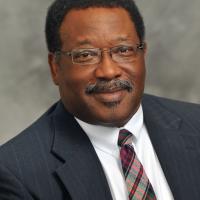Commentary on John 1:1-18
To say that “the Word became flesh” in the first Christian century carried a variety of meanings.
Platonists believed that the high god was transcendent and aloof from the world. They also believed that the mind was the superior part of human beings and that the mind had to control the flesh. The flesh was weak and leaned toward pleasure to the excess. The Word becoming flesh would have been a ridiculous statement for Platonists: while a god might assume human-likeness, surely no self-respecting god would actually become human.
Stoicism did not believe the high god was aloof. Indeed, the Stoics believed that God and universe were two aspects of the same reality, that is God and world were inseparable. God was the logical center of the universe, giving rationality and logic to the whole. Moreover, a spark of the divine was in every living creature. For the Stoics to say “the Word became flesh” could simply mean that God was at the center of human activity. While Stoics might quiver with the details of what that means, it would be a starting point for an intriguing conversation.
While the early Christians who embraced the Incarnation were Jewish, they did not speak for everyone in Judaism. Many Jewish writers, like Philo, could speak of Wisdom as a divine hypostasis who represented God in human history, but they stopped short of saying that God became human.
For Christians this statement conveyed that the God of the universe cared so much for humanity that through his son he became more like humans so that they might become more like him. This affirmation about God was an advancement upon contemporary thoughts about the divine. Against the Platonists, it conveyed that God is indeed transcendent, but he is not aloof. God engages with the world in love. It communicated that God cares.
It also said (against the Stoics) that the Creator and the creation are not one, but it has not stopped the Creator from caring about the creation. God is still at the center of the universe for Christians, but not as a Center of control but a Center of caring. This God makes the unthinkable thinkable. He not only gives dreams but also gives people the power to make dreams come true. This God loves the world.
For early Christians, the Word was more than a representative essence of the divine. The Word is not an ambassador from heaven. The Word is God and fully represents the will of God in the world. This was not an abstract truth for early Christians, but a personal connection between the Divine and the devotee grounded in loving grace.
What does it mean today for Christians to say that the Word has become flesh? I believe that it means that the Christian Church must become more ethical and less theological. One of the major fallacies of the modern American Church is that proper doctrine automatically includes proper ethics. Nothing can be further from the truth. Often the Christian who regularly attests to God’s love expressed to him/her as divine grace is the last person to demonstrate love. They act as if being saved exempts them from being more like Christ. They act as if doctrinal knowledge excuses them from the ethical behavior that comes with the doctrine. We need to do three things.
First of all, the Church needs more Christians who are not aloof but loving, Christians who care for others simply because they need help. The Church needs Christians who put their faith before their country and do not practice the idolatry of nationalism in any form. The Church needs members who are more concerned with protecting the faith than protecting the tradition. The Church needs more Christians who seek to become a blessing for others instead of always looking for a blessing.
Along with more ethical Christians, the Church needs members who truly understand what the word “grace” means. It does not connote that once saved one can then look down one’s nose at non-Christians. While I may not abuse substances or abuse my spouse, I still have shortcomings which I need to work on. I am far from perfect. Grace should convey that while we have given our lives to Christ that we are still flawed human beings. Occasionally, we still need to fall on our knees to re-ask God for forgiveness. Occasionally, we still need to ask others for forgiveness and start from scratch all over again. Grace does not free us from error, both intentionally and unintentionally. We Christians are moving toward perfection, but we ain’t there yet.
Finally, along with the need for love and the need to fully understand what grace means, we need to learn to be righteous without becoming self-righteous. We Christians are representatives of the Creator. We are not one with the Creator. Righteousness comes from God and goes back to God through our actions. When this happens, Christians are merely the medium and not the message. We are a part of the process, not the end all and be all. Self-righteousness cannot be found in prayer, but it can be found in a mirror. Self-righteousness has a short shelf-life, but righteousness is eternal.
When we do these three things, the Word has become flesh and still dwells among us and we see his glory, the glory as of the Father’s only son.
PRAYER OF THE DAY
God of all time,
Your Word became flesh and walked among us. Receive our gratitude and awe for all that you have done through Jesus Christ our Lord. Amen.
HYMNS
Of the Father’s love begotten ELW 295
O come, all ye faithful ELW 283, H82 83, UMH 234, NCH 135
Soon and very soon ELW 439
CHORAL
The Glory of the Father, Egil Hovland


December 24, 2017